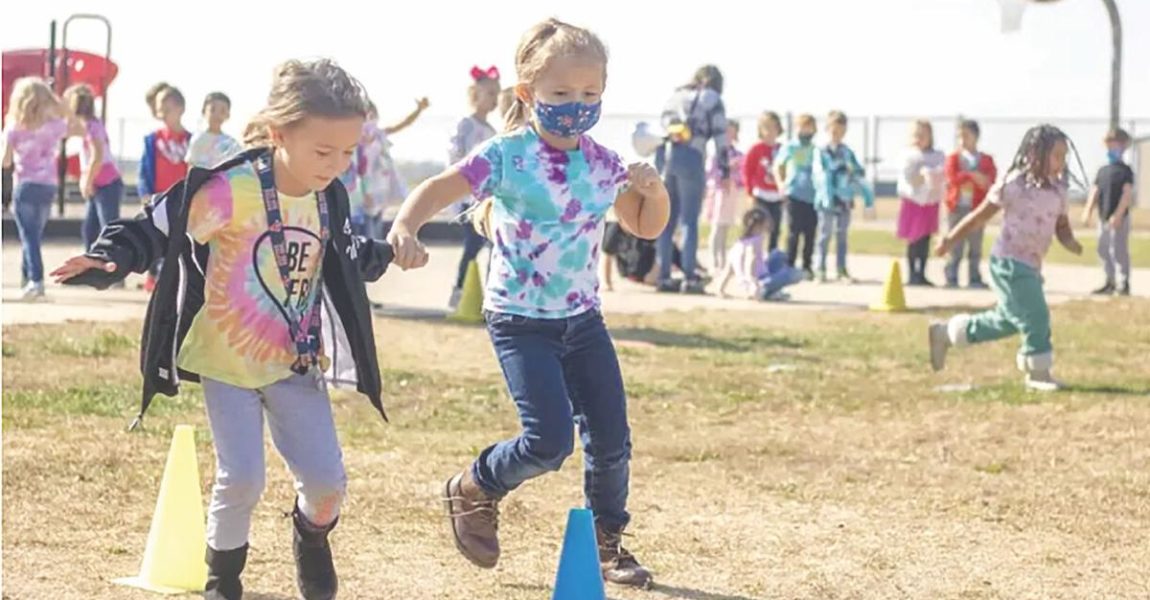Kansas is facing a severe shortage of licensed child care providers, according to a recent report released by state and nonprofit agencies. Estimates show that less than half of the “potential demand” in the state is being met.
The 2021 Supply Demand Report released earlier in June covers the challenges child care providers have faced during COVID, the diminishing number of licensed child care providers and how close providers come to meeting potential demand.
“We obviously want to see families be able to access licensed child care, because we know that there’s minimum health and safety standards [that] are being met, minimum child care quality in terms of curriculum and activities, and the environment that supports optimal development for young children is there,” said Kelly Davydov, executive director of Child Care Aware of Kansas.
In the Wichita area, spaces with licensed care providers in Sedgwick County cover about 45% of the potential demand for spots. Nearby Butler County also has slots for about 45% of children. The numbers are lower in other neighboring counties, with Kingman County at 35%, Harvey County with about 32% and Reno County at 40%.
In the Kansas City area, Wyandotte County has spaces for about one-third of the potential demand. Slots in Johnson County cover about two-thirds of potential demand.
Statewide, licensed child care providers had space for about 49% of the children who might need a slot, down from 54% in 2019.
Child Care Aware uses federal and state data to create its reports. Its website also offers updated data on each county at any point in time.
The report’s “potential demand” statistics include children under age 6 with all parents in the workforce, based on Census data.
When calculating available supply, the report doesn’t include preschools, Head Start programs or kindergartens – all of which typically aren’t all-day, year-round programs, Davydov said.
When licensed options aren’t available, parents “have to fall back on informal care options that are outside of the regulated community,” and that can be less safe, she said. It may lead parents to leave the workforce, which can have detrimental ripple effects on businesses and their communities.
The 2021 report shows that the number of available licensed child care spaces has dropped. From 2019-2021, the number of licensed programs in Kansas declined from more than 4,500 to less than 4,300.
The state lost 275 licensed family homes, which can each serve up to 10 children at a time.
Davydov said many of those smaller programs particularly struggled during the pandemic because they had smaller profit margins and fewer workers. If they had to close temporarily because of children or staff sick with or exposed to COVID, it was harder to survive the loss of revenue.
Kansas also lost 15 preschools or Head Start centers. The numbers of licensed group homes and child care centers grew slightly.
Not everyone feels the impact equally. According to the report, rural areas rely more heavily on licensed family homes.
Parents of infants and toddlers may also have a particularly hard time finding space. In 21 counties there were no open spots at all. Johnson, Wyandotte and Sedgwick counties had 11-20 children under 3 for each child care opening, according to the report.
The report also noted a shortage of programs that offer languages other than English, care for children with special needs or have nontraditional hours – especially in rural areas.
The report says that assisting child care providers with health and safety needs related to the pandemic and administering operational grants have helped make the situation less dire than it could have been.
Davydov said Child Care Aware provides resources and support for people who want to become licensed child care providers.
On a societal level, improved respect and better pay for early childhood educators could also help strengthen child care in the state, she said.
“This has been an incredibly resilient group of folks in our Kansas communities,” Davydov said. “They stayed open when many other businesses closed during the pandemic, they continued to operate, they continued to provide high quality care for young kids. They stuck with us and they’re really an essential part of Kansas’ economy.”
